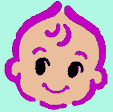Nineteen bodies were found 26th July in Sagamihara, Japan.
Satoshi Uematsu (植松 聖), a 26-year old Japanese male, surrendered himself to police. Weeks before, he'd warned authorities he wanted to provide euthanasia 「安楽死」 to the physically or mentally weak. The 19 dead, and 26 others wounded, were attacked around 2:30AM as they slept in a publicly-managed group home for disabled people.
Japanese police describe the incident as mass murder. But they've not named any murder victims.
Handicapped people often are treated as less-than-human in Japan. Many families wish to hide any relationship to mental illness or having a family member who is in any way crippled. The existence of such people is often a closely-guarded secret.
By refusing to provide human names for the victims, we're reminded of Japan's callousness during WWII, when deadly human experimentation on Imperial Japanese Army prisoners used the euphemism "maruta" ("logs") to describe human victims. The cruel medical experiments, notably by Unit 731 and Surgeon General Shiro Ishii around Harbin, used Chinese & Allied prisoners-of-war and Russian captives to test biological and chemical agents useful as potential weapons for Japan. (After the war, the American government provided war crimes immunity in exchange for key data). Nazi SS Dr. Josef Mengele's human experiments are thus far better known than the vivisection practiced by Japan and the accompanying murders of those surviving first round experimentation. So cruel and callous!
In fact, most people in Japan still insist on labeling mixed-parentage children (where only one parent is Japanese) as "half" ハーフ... Could a crazy kill a dozen and be charged for six or less? Focus on 混血 is unhealthy -- we should teach to appreciate individual positive dimensions, and not systematically handicap based on differences.
MARUTA attitudes still survive today...
Satoshi Uematsu (植松 聖), a 26-year old Japanese male, surrendered himself to police. Weeks before, he'd warned authorities he wanted to provide euthanasia 「安楽死」 to the physically or mentally weak. The 19 dead, and 26 others wounded, were attacked around 2:30AM as they slept in a publicly-managed group home for disabled people.
Japanese police describe the incident as mass murder. But they've not named any murder victims.
Handicapped people often are treated as less-than-human in Japan. Many families wish to hide any relationship to mental illness or having a family member who is in any way crippled. The existence of such people is often a closely-guarded secret.
By refusing to provide human names for the victims, we're reminded of Japan's callousness during WWII, when deadly human experimentation on Imperial Japanese Army prisoners used the euphemism "maruta" ("logs") to describe human victims. The cruel medical experiments, notably by Unit 731 and Surgeon General Shiro Ishii around Harbin, used Chinese & Allied prisoners-of-war and Russian captives to test biological and chemical agents useful as potential weapons for Japan. (After the war, the American government provided war crimes immunity in exchange for key data). Nazi SS Dr. Josef Mengele's human experiments are thus far better known than the vivisection practiced by Japan and the accompanying murders of those surviving first round experimentation. So cruel and callous!
In fact, most people in Japan still insist on labeling mixed-parentage children (where only one parent is Japanese) as "half" ハーフ... Could a crazy kill a dozen and be charged for six or less? Focus on 混血 is unhealthy -- we should teach to appreciate individual positive dimensions, and not systematically handicap based on differences.
MARUTA attitudes still survive today...


